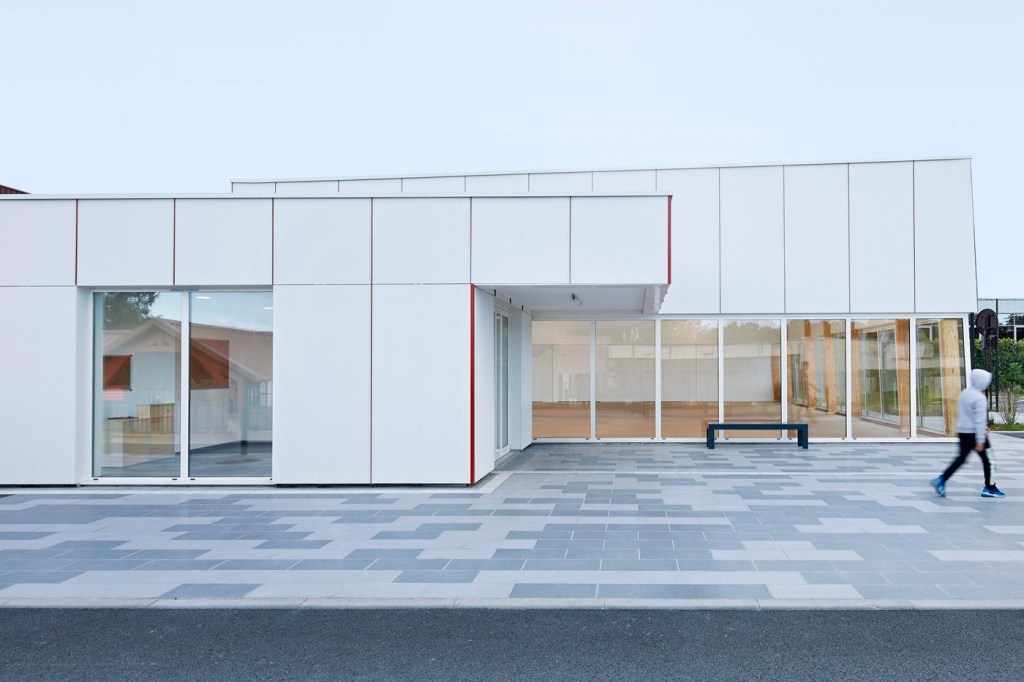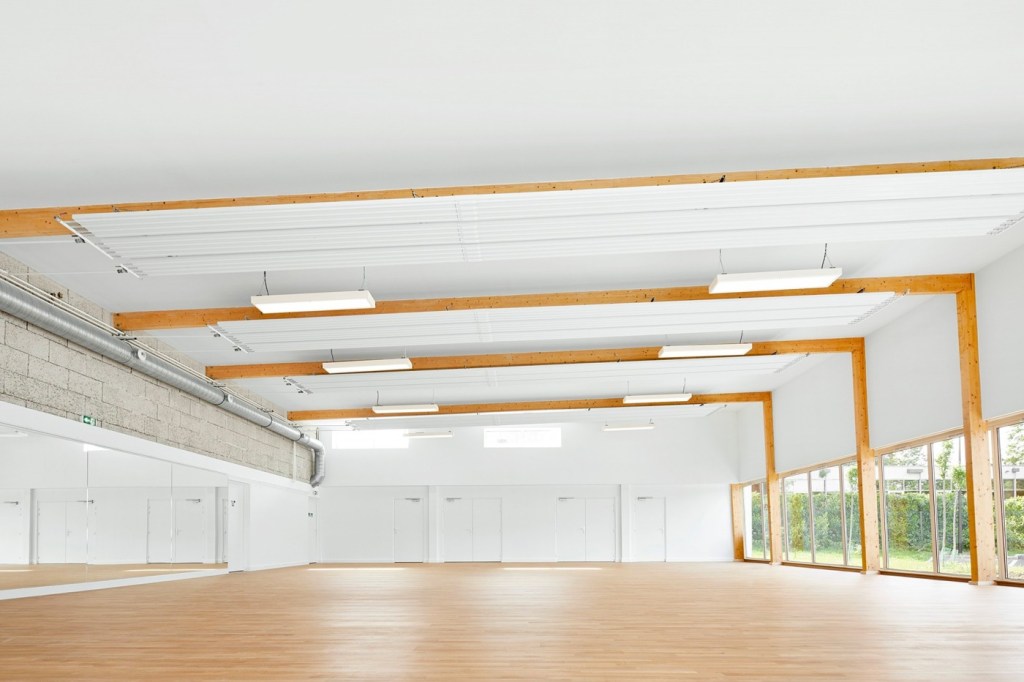The 380 square meter Pierre Chevet sports hall built by Paris studio Lemoal Lemoal is believed to be the country’s first public building built from hempcrete blocks.

Lodged in
These are used to shape up the walls while the exteriors have an overlay of white cement-fiber panels to help protect the hempcrete from environmental factors. Within the interiors, the sports hall features a wooden half-vaulted structure that allows a column-free space for a wide-open exercise center and changing rooms.

Hempcrete boasts a number of qualities such as acoustic performance and being fire-resistant as its structure could last for 30 minutes in a fire. The material also helps reduce the embodied carbon produced by construction and is now in high demand, especially with France’s new laws urging architects to incorporate biomaterials in upcoming projects.

“Hempcrete is very popular due to its high qualities for construction, which is really good news for sustain

With an interlocking system and dry assemblage, the hempcrete blocks can forego the use of adhesives or mortar and also cuts the need for additional insulation. According to Cambridge University researcher Darshil Shah, hemp is one of the top CO2-to-biomass converters.




